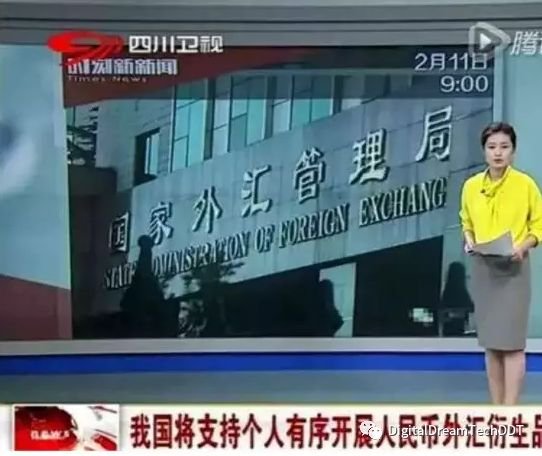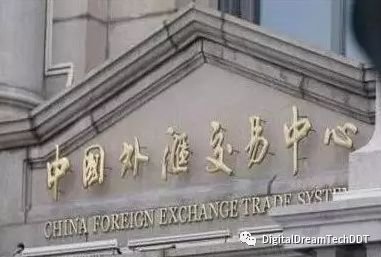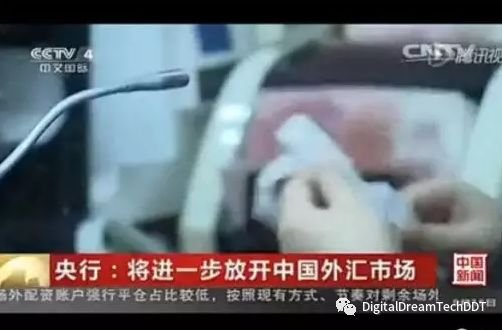Why do China have to open up foreign exchange market?

In the past, people emphasized the pragmatic role of international reserves, that is, the use of “real money and silver” to meet the needs of importing, paying debts and intervening in the foreign exchange market. However, the series of crises that have occurred since the 1990s have changed the function of foreign exchange reserves to a considerable extent. We analyzed the implications of these crises:
First, developing countries are generally vulnerable to the real economy and financial system, and these factors can easily induce the impact of international speculative capital on a country's currency.
Second, in the context of the gradual deepening of financial globalization, due to the unusually large scale of international speculative capital, it is futile to rely solely on foreign exchange reserves to maintain a fixed exchange rate system.
Third, in the context of financial globalization, the rationality of the existence of small currencies in small economies has gradually been lost.
The Asian financial crisis has exposed the weakness of developing countries in adhering to the fixed exchange rate system. Therefore, the world has formed a trend from a fixed exchange rate system to a floating exchange rate system. There is also a problem in the middle.

According to economic theory, under the floating exchange rate system, the intervention of the monetary authorities of various countries on the foreign exchange market will be greatly reduced, and there is no need to maintain a large amount of international reserves. However, after the large-scale abandonment of the fixed exchange rate system by developing countries and transition countries, they The foreign exchange reserves have increased rapidly. Today, nearly two-thirds of the world's $3.5 trillion in foreign exchange reserves are in Asia, while the dollar group and the euro group are reducing domestic reserves on a large scale. At the same time, the intervention of exchange rates in developing countries and countries with economies in transition is more severe than in the past.
To explain these phenomena, a new understanding of the reserve function is needed. Specifically, there are currently three reasons for developing countries to hold large amounts of foreign exchange reserves:
First, international reserves can increase the credibility of monetary policy and stabilize exchange rate expectations. According to the new theory, international reserves are mainly not for use, but to maintain people's confidence in their own currencies and maintain the government's ability to intervene in the market.
Under this new pattern, countries have nominally abandoned the fixed exchange rate system, but in fact maintained a relatively stable exchange rate level through high foreign exchange reserves, making it difficult for international speculative capital to accurately predict exchange rate movements. This is the best monetary policy. In addition, compared with the open commitment of the monetary authorities to exchange rate stability under the fixed exchange rate system, the monetary authorities under the floating exchange rate system have more credibility in the non-public commitment to exchange rate stability after having high foreign exchange reserves.
Second, adequate international reserves can weaken the risk of currency substitution. As long as the exchange rate is fixed, currency substitution is difficult to avoid. However, in the case of a floating exchange rate system and a high international reserve portfolio, currency substitution is not necessarily profitable, so it is not easy to happen. The substitution of currency has a negative impact on the economy of developing countries, which will weaken a country's monetary sovereignty and financial sovereignty, thus making the country's economy in fact a vassal of a currency power.
Third, international reserves can increase national financial resources. So far, many people have felt bad when they commented on China's financial system. But when China thinks there are more than 660 billion US dollars in reserves, people's confidence in this system has greatly improved. This is an expression of international reserves as a national financial asset.
When it comes to China's international reserves, there are several issues that need to be clarified.
First, there are four sources of China's international reserves: current account surplus, capital account surplus, unclear capital inflows, and foreign currency deposits of domestic residents (including enterprises and residents).
In China's foreign exchange reserve statistics, foreign exchange deposits held in the hands of residents are not counted. By the end of 2004, according to official statistics, this foreign exchange deposit was about 200 billion US dollars, of which residents and enterprises each accounted for half. In addition, according to the Fed's estimate, there are still about 100 billion US dollars of cash in circulation in China. These foreign exchange funds have accumulated in history and their sources are difficult to clarify.
Originally, this foreign exchange fund was held in the private sector, and residents generally did not use it for RMB. However, the argument that the appreciation of the renminbi has been in recent years has been endless, and people’s hearts and minds have been rumored. Any rumors of appreciation of the renminbi will result in a decrease in the net amount of foreign exchange deposits of residents in the banking system. The money was sold to the bank, and the bank sold it back to the central bank to form an increase in foreign exchange reserves. Moreover, the increase in foreign exchange reserves was not reflected in the balance of payments statement of the year.
Second, the benefits of international reserves. Recently, many statements about international reserves in the market say that China’s reserve income is very low, and it is a waste to accumulate so many reserves. Since the figures on reserve income are absolutely confidential, it is impossible for the monetary authorities to come forward to clarify, and the average person does not know the truth. However, the income of China's foreign exchange reserves can be indirectly estimated through the flow of investment income in China's balance of payments. It should be said that the income of China's foreign exchange reserves is very good, and the arguments in the square are not reliable.
However, it does not mean that there is no problem in the substantial growth of foreign exchange reserves. There are two main problems:
First, the impact on monetary policy is too great. It has caused a large increase in our money supply through foreign exchange holdings, and we now lack a means of hedging;
Second, the rapid growth of foreign exchange reserves and the many problems caused by it have led to an increase in economic friction between China and many countries in the world, mainly developed market economies;
Third, it is the currency risk of foreign exchange reserves. In addition to this, there are issues of coordination with other macroeconomic policies, and so on.
According to the above analysis, the large-scale increase in foreign exchange reserves of developing countries and countries with economies in transition may be a long-term phenomenon, as long as the Asian region does not establish some form of monetary union, as long as the global monetary system is not uniform, except for the United States and the European Union. Other countries and regions, especially Asian countries and regions, must hold a large amount of foreign exchange reserves.
In other words, to change the current state of affairs, the fundamental solution,
First, the formation of a new international monetary system and the formation of new international reserve assets;
The second is to form an Asian currency zone to compete with the two major currency zones, the US dollar and the euro. This is a very long-term task for us in the future.
As an emerging industry, foreign exchange faces numerous opportunities in a huge market, but it also faces enormous challenges.

As an emerging industry, foreign exchange faces numerous opportunities in a huge market, but it also faces enormous challenges.
First, at the national policy level, the pace of RMB internationalization has been advancing.
With the renminbi joining the international basket of monetary policy, the renminbi has become an important international currency.
The primary focus of financial reform in the FTA is to promote the further opening of the financial capital market.
Second, the atmosphere and environment for investment in the global market have begun to take shape in China.
Private equity broke out, and the market participants showed a state of blooming. The scale of funds and the volume of transactions have reached the highest level in history.
The power of the Chinese capital market shocked the world. Such a large financial volume and the number of participants have produced spillover effects.
Many investors have turned their eyes to overseas markets. In addition, a large number of influential companies such as Alibaba and Jingdong went to the US to go public.
Shanghai-Hong Kong Stock Connect opened, and has expanded the horizons of Chinese investors to the United Kingdom, the United States, Australia, Canada, New Zealand and other markets.
Third, the well-known brokerage platform of the global foreign exchange industry has gathered in the Chinese market. The Chinese foreign exchange industry has formed a situation in which hundreds of flowers bloom and hundreds of schools contend.
The presence of well-known brokers in the foreign exchange industry has brought experience and talent reserves to the Chinese foreign exchange industry. The current foreign exchange market is extremely competitive, and the industry as a whole has shown sound development. Practitioner's compliance awareness is relatively strong, and the quality of employees is relatively high. In the fierce market environment, platform vendors are getting better and better protection for investors, and generally attach importance to the development of brands and soft power. There are more and more entrepreneurial media in the foreign exchange industry, and investor education and transparency are rapidly increasing.
Fourth, institutions and asset management personnel have transformed into external investment, injecting the investment force of the regular army into the foreign exchange industry.
Now Chinese investment institutions are increasingly paying attention to global investment, and the entire market captures trading opportunities. As one of the most important markets in the global financial industry, the foreign exchange market has such well-known figures as Soros as a guide, and domestic investment institutions have long been eager to try. In the current outbreak of the foreign exchange market, all institutions have begun to focus on the emerging industry of foreign exchange trading. Talent, R&D, market, many institutions began to lay out in the foreign exchange market. It can be said that Chinese institutional investors going global can not miss the huge investment market of foreign exchange.
Foreign exchange investment has gradually become a hot investment channel in China. More and more people have started the road of foreign exchange investment, and it has become the new favorite of the investment community!